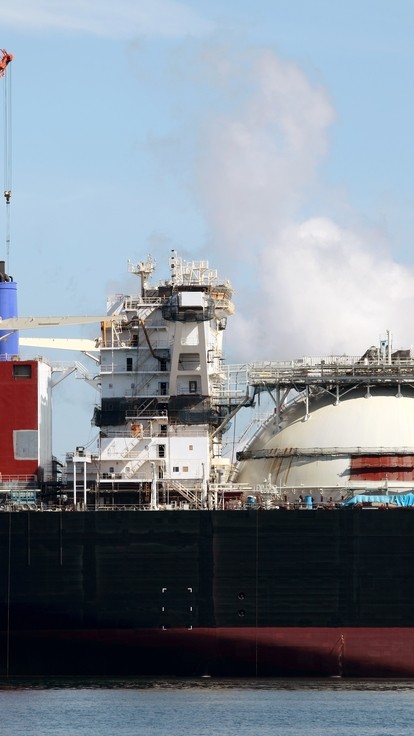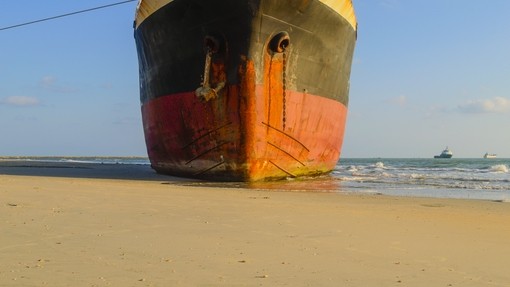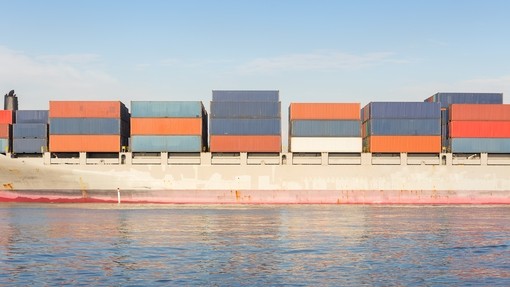Lukoil Asia Pacific PTE Limited -v- Ocean Tankers (PTE) Limited [2018] EWHC 163 (Comm)

Details
Introduction
An appeal from an arbitration award in relation to whether a ‘time lost waiting for orders claim’ was a ‘demurrage claim’ for the purposes of engaging the documentary time bar clause in a voyage charter.
Factual background
In November 2013, Lukoil entered into a voyage charter with Ocean Tankers (as owners), which incorporated the VOY2005 form standard terms and Lukoil International Trading’s Exxonvoy 2005 clauses (the Litasco clauses). Owners later brought arbitration proceedings against Lukoil in respect of demurrage of just over US$772,000. Most of this had been incurred after a delay at Gladstone, the first discharge port, due to a cargo dispute between charterers and receivers. After tendering a notice of readiness on 2 December 2013, and berthing for a day, the vessel was sent back to anchorage where she waited for orders for over 40 days.
Clause 2A of the Litasco clauses in the charter stated that charterers would be released from liability unless demurrage claims were presented in writing to charterers with supporting documentation within 90 days of discharge of the cargo. Clause 2B listed the supporting documents that must be included with a demurrage claim, such as a certificate of notice of readiness, letters of protest and statement of facts. Clause 4 stated that any delay at anchor waiting for orders was to count as laytime or demurrage, if the vessel was on demurrage.
Although owners brought their claims for demurrage within the required 90 day period under clause 2A, they did not provide a countersigned statement of facts for each of the four ports, or letters of protest in the alternative. On this preliminary issue, the tribunal found that owners’ demurrage claims were therefore time barred as they had not provided all the supporting documents required under clause 2B. However, because owners had re-labelled the delays at Gladstone as time lost waiting for orders under Litasco clause 4, the tribunal treated this claim as falling outside the requirements of clause 2B. The award stated that the ‘…strict application of the requirements [for supporting documents under] clause 2B…are not applicable to a claim for time lost waiting for orders…When a vessel has to wait for orders…off port limits in order to avoid port charges…[she] may generate no communications at all with anyone at the port.’
Charterers appealed to the High Court on the basis that a claim under clause 4 of the Litasco clauses was a claim for demurrage and therefore the clause 2B document requirements applied: there were no commercial reasons for failing to give the language of the Litasco clauses their clear and plain meaning. On the contrary, commercial considerations reinforced that plain meaning.
Owners submitted that clause 2B should be restrictively construed. The fact that a clause 4 claim was to ‘count as’ demurrage for the purposes of computation did not make it a claim for demurrage for all purposes. There was no reason to suppose that the documents listed in clause 2B were likely to be relevant or necessary for assessing a claim for time lost waiting for orders, a claim which involved no breach by the charterers and should be treated differently to demurrage claims which were liquidated damages for operational delays in relation to use of the vessel.
Legal Issues
Mr Justice Popplewell allowed the appeal, agreeing with charterers that the language of the charter provided in clear terms that a Litasco clause 4 claim was a demurrage claim. On that basis, the requirements for supporting documents under clause 2B applied and the claim was time barred.
The court reviewed the recent high authorities on the construction of commercial documents, including Arnold -v- Britton [2015] AC 1619 and Wood -v- Capital Insurance Services Limited [2017] AC 1173, and noted that interpretation involved checking each suggested interpretation against the provisions of the contract and then investigating its commercial consequences. The quality of drafting was also to be given weight and on this point Popplewell J noted that both the VOY2005 form and the Litasco clauses incorporated detailed and carefully drafted terms and the fixture recap was framed by reference to them. It was therefore convenient to start with the language used in the charter as a whole.
The obligation to pay demurrage was found in clause 13(d) of the VOY2005 form which confirmed that demurrage was to be paid for all time exceeding the allowed laytime. This included not only time taken for loading and discharging but time taken ‘…for all other charterer’s purposes and which, under this charter, counts as laytime or as time on demurrage.’ Therefore, there was only one type of claim, and it followed that a claim under clause 4 was not just to be quantified in the same way as a demurrage claim, at the demurrage rate, it was a demurrage claim under clause 13(d).
The fact that a claim for waiting time under clause 4 was qualified by the laytime otherwise used or not used in the course of performance of the voyage, reinforced the court’s view of construction. While there were circumstances where there would be no laytime to count, such as when the order to wait at anchorage is prior to arrival at the loadport, clause 4 must have been intended to also apply when waiting for orders takes place after arrival and/or after loading and/or after part discharge. In such circumstances, a clause 4 claim could only be part of a claim for demurrage under clause 13(d) and both clauses required waiting time to be treated as laytime.
There were no commercial considerations or consequences why a Litasco clause 4 claim could not be a demurrage claim. Referring to the judgment of Bingham J in Babanaft International Co SA -v- Avant Petroleum (the “OLTENIA”) [1982] 1 Lloyd’s Rep 448, Popplewell J held that the commercial intention behind requiring the documents listed in clause 2B to be provided was to enable the parties to have a final accounting as quickly as possible, and to allow for factual enquiries to be made whilst recollections were still reasonably fresh.
Importantly, where specific documents listed in clause 2B never came into existence, the requirements of the clause would not be engaged. Clause 2B itself qualified the requirement to produce them with the words ‘whenever possible’. When considering the documents to be produced, the court did not find it helpful to focus only on the place where the vessel waits: any delay occurring after notice of readiness had been tendered, such as at the first loadport, would involve the swift calculation of laytime used, and enabling this was the very purpose behind clause 2B. The arbitrators had found that owners had failed to provide sufficient documents to justify the demurrage claims relating to loading and discharging operations and the court could see no reason why owners should be entitled to supply less rigorous documentation for the loadport merely because the delay at Gladstone was a claim under clause 4.
Further support for the court’s construction was found in the contrasting wording used in clauses 4 and 7 of the fixture recap, where the parties had drawn a distinction with the Litasco clause 4 by referring only to compensation ‘at the demurrage rate’, with no reference to, or requirement to analyse, laytime. The carefully chosen change in language gave rise to the presumption that the parties intended to achieve a different effect, namely quantifying the value of time using the demurrage rate, not demurrage, as the yardstick.
Comment
Whilst acknowledging the tribunal’s maritime experience, the High Court has reversed its construction of the charter, which would have allowed owners to re-label claims when a vessel is waiting for orders in order to avoid the requirements to produce documents before the time bar. Mr Justice Popplewell noted that courts and tribunals regularly insist on strict compliance with such clauses in order to give effect to the clarity and certainty which they are designed to achieve, and that the court’s construction was also giving proper effect to the contractual terms agreed by the parties.
This article originally appeared in the February 2018 edition of shipping case digest. Other articles include:
Glencore Energy UK Ltd and Glencore Ltd -v- Freeport Holdings Ltd [2017] EWHC 3348 (comm)
Phones 4U Limited -v- EE Limited: sailing away from typical contractual termination principles






